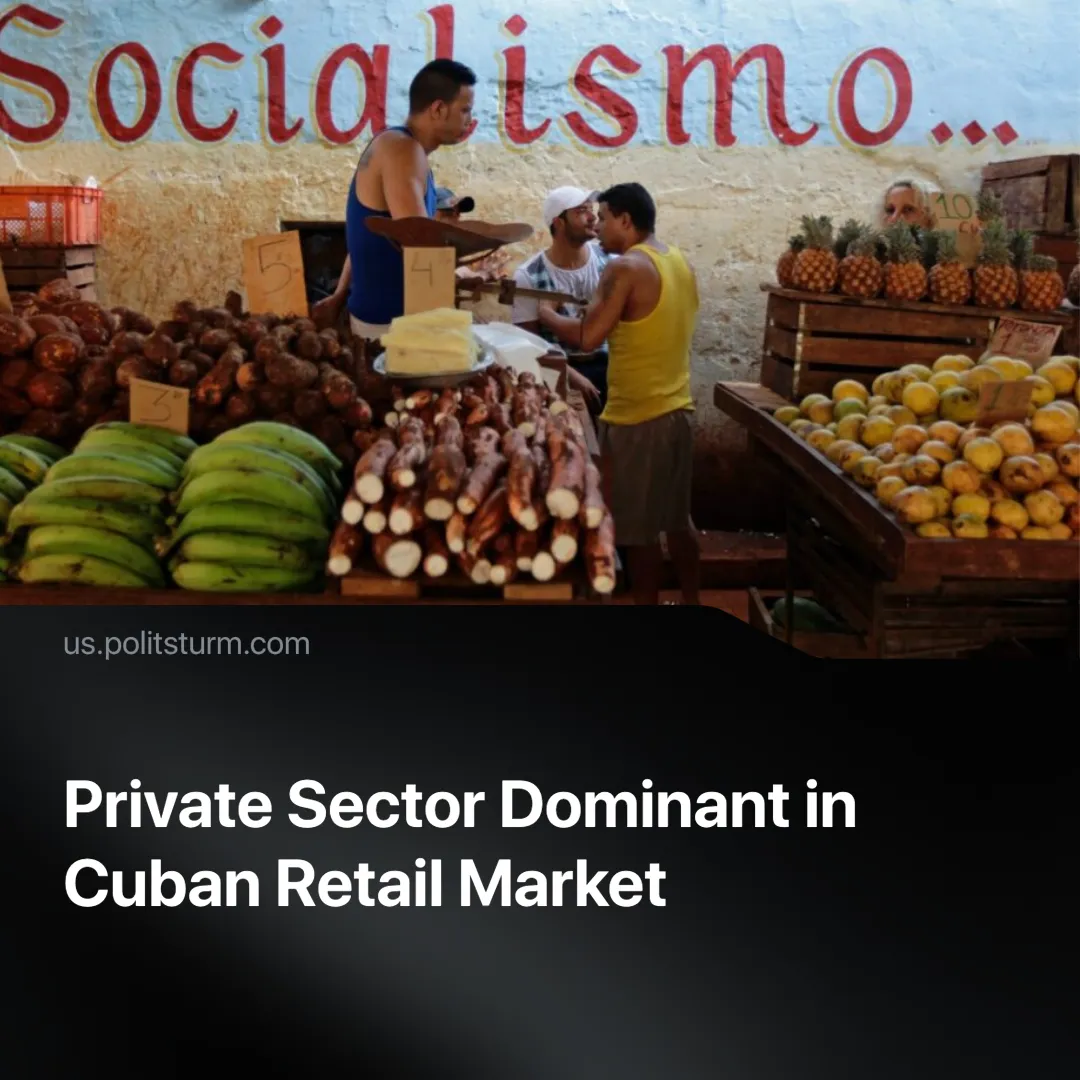In Cuba, private retail has for the first time surpassed state commerce. During the NEP in the Soviet Union, the Bolsheviks did not allow private capital to dominate trade.
Details. New data from the Cuban National Statistics Office show that in 2024, the non-state sector accounted for 55% of retail sales of goods and services, compared to 44% in 2023. This is the first time that private capital has surpassed state commerce since the establishment of socialism in Cuba.
► Previously, the Cuban Minister of Economy noted that private importers increased foreign imports by 34% over the last year, exceeding $1 billion in value.
Context. This development is in line with the ongoing capitalist reforms in Cuba. They include the reintroduction of private real estate ownership, allowing business owners to employ labour and opening the national economy to foreign capitalists.
► In 2019, the Cuban government promulgated a new constitution which recognised private property on the means of production and guaranteed the rights of capitalists.
► In 2021, the Minister of Economy and Planning of Cuba, Alejandro Gil Fernández, said that the growth of the private sector “is for the perfection of the economic model because we need to reach an efficient economy”. Two years later, the President of Cuba said that “there’s no crusade against the private sector”, making it clear that this trend continues.
► Cuba is becoming increasingly open to foreign capital. Russian and Chinese companies are the most active, but trade and investment also come from Spain, Canada, Italy, the UK and a number of other countries.
Important to Know. Control over trade is an important element of the economy, allowing for control of price levels, real wages, and avoiding commodity shortages.
► In the USSR, in the first years of the NEP, retail and wholesale trade came under the dominance of private capital. This was due to the insufficient experience of the Soviet leadership in the sphere of trade. Speculators undermined the trust of workers and amassed capital. Lenin admitted: "This system of commodity exchange has broken down; it has broken down in the sense that it has assumed the form of buying and selling... the private market proved too strong for us; and instead of the exchange of commodities we got ordinary buying and selling, trade."
► The Bolsheviks understood the danger of this situation. They addressed the problem by sharply improving the quality of state trade and developing cooperative trade. Stalin reported: "Shall we succeed in linking our socialised industry with peasant economy, ousting the private trader, the private capitalist, and learning to trade; or will private capital beat us by causing a split between the proletariat and the peasantry? — that is how the question stood at that time."
► In the 1925-1926 trading year, the share of private capital in retail trade had fallen to 40% compared to 75.3% in 1922-1923. Two years later, its share had fallen to 25.4%. In 1930, private capital served only slightly more than 5% of retail trade.
► Historically, the growth of the role of private capital in trade was one of the elements of the counterrevolution. In China, during Deng Xiaoping's "reforms", control over trade passed to private traders. This gave a powerful impetus to the growth of the bourgeoisie, which became rich due to redistribution. In the USSR itself, in the 70s and 80s, a layer of underground speculators formed, destabilising the economy. Having legalised themselves during "Perestroika", they became one of the groups of the new bourgeoisie.


